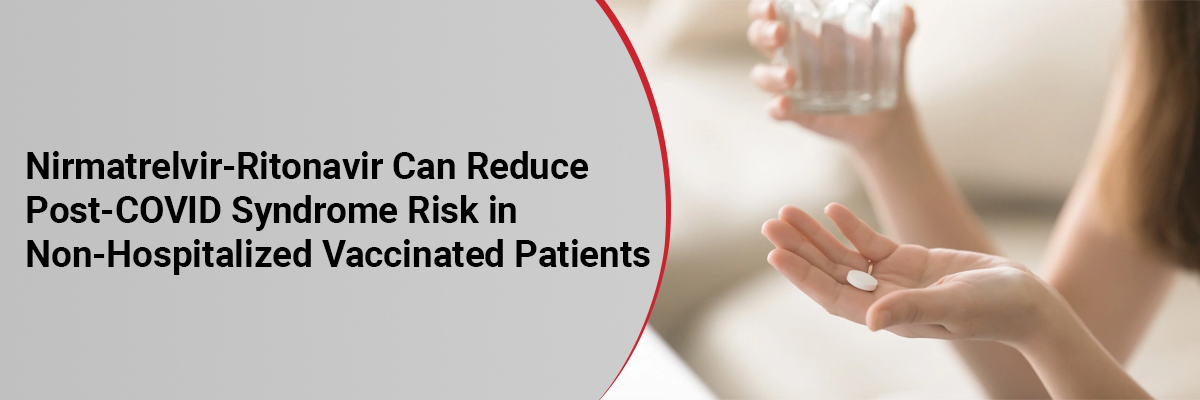
 IJCP Editorial Team
IJCP Editorial Team
Nirmatrelvir-ritonavir can reduce post-COVID Syndrome Risk In Non-Hospitalized Vaccinated Patients
In a recent study published in the medRxiv preprint server, researchers assess the effect of nirmatrelvir plus ritonavir (NMV-r) on the onset of post-acute sequelae of severe acute respiratory syndrome coronavirus 2-infection (PASC) aka long coronavirus disease 2019 (COVID-19).
The global burden of PASC is rising rapidly, which will cause adverse public healthcare and economic impact. NMV-r is now a popular antiviral therapy for outpatient mild-to-moderate COVID-19 cases, including unvaccinated patients.
A recent study assessed the incidence of PASC-related symptoms in people treated with NMV-r. It included 279,380 vaccinated adults above 18 years of age who suffered from COVID-19 infection and received NMV-r within five days of diagnosis and did not seek hospitalization throughout the study duration.
The researchers discovered that only 1,004 individuals received NMV-r within five days of diagnosis. Between 30 to 180 days post-infection (pi), PASC-related symptoms occurred in 42% and 48%of NMV-r and control patients, respectively. NMV-r therapy showed to reduce the risk of cardiovascular, respiratory, and gastrointestinal symptoms, anxiety, or mood disorders but had no marked effects on musculoskeletal and nervous system symptoms. NMV-r therapy also showed a lower association with a narrow definition of a three-symptom cluster of PASC than the control.
The study confirmed that NMV-r therapy could reduce the incidence of most commonly reported PASC-related symptoms, thus, has a promising clinical implication.

IJCP Editorial Team
Comprising seasoned professionals and experts from the medical field, the IJCP editorial team is dedicated to delivering timely and accurate content and thriving to provide attention-grabbing information for the readers. What sets them apart are their diverse expertise, spanning academia, research, and clinical practice, and their dedication to upholding the highest standards of quality and integrity. With a wealth of experience and a commitment to excellence, the IJCP editorial team strives to provide valuable perspectives, the latest trends, and in-depth analyses across various medical domains, all in a way that keeps you interested and engaged.










.jpg)








.jpg)

Please login to comment on this article